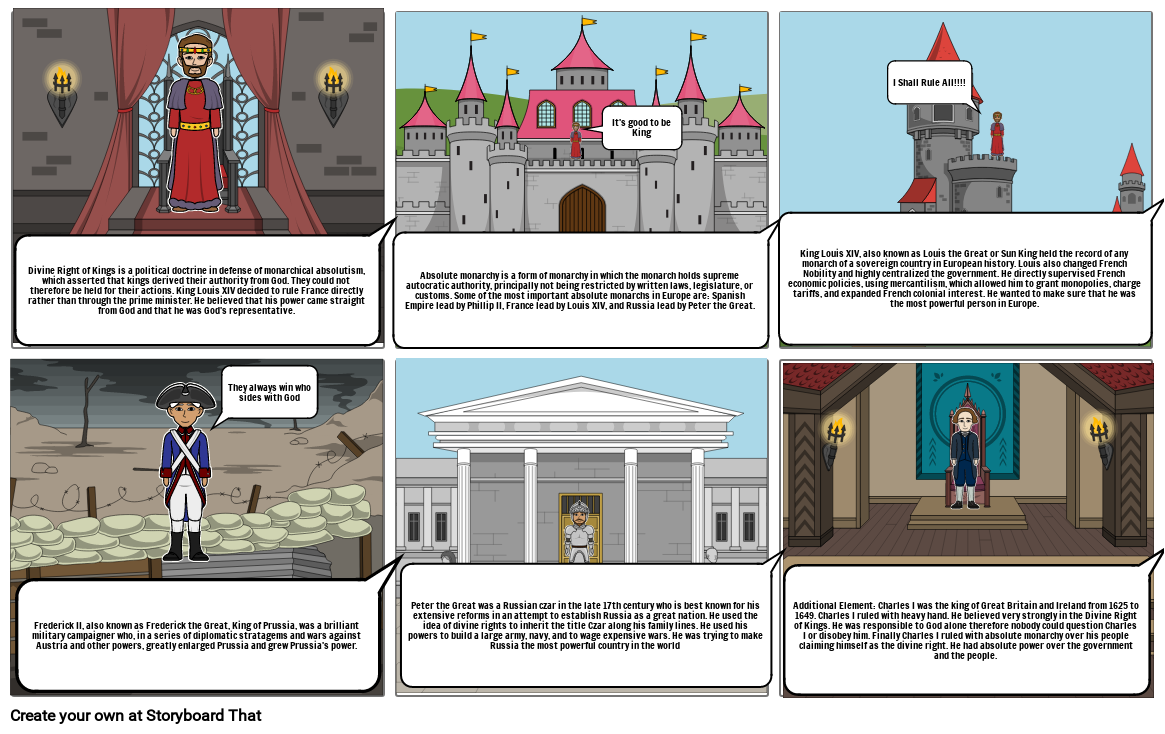Age of Absolutism

Storyboard Text
- Divine Right of Kings is a political doctrine in defense of monarchical absolutism, which asserted that kings derived their authority from God. They could not therefore be held for their actions. King Louis XIV decided to rule France directly rather than through the prime minister. He believed that his power came straight from God and that he was God's representative.
- Absolute monarchy is a form of monarchy in which the monarch holds supreme autocratic authority, principally not being restricted by written laws, legislature, or customs. Some of the most important absolute monarchs in Europe are: Spanish Empire lead by Phillip II, France lead by Louis XIV, and Russia lead by Peter the Great.
- It's good to be King
- King Louis XIV, also known as Louis the Great or Sun King held the record of any monarch of a sovereign country in European history. Louis also changed French Nobility and highly centralized the government. He directly supervised French economic policies, using mercantilism, which allowed him to grant monopolies, charge tariffs, and expanded French colonial interest. He wanted to make sure that he was the most powerful person in Europe.
- I Shall Rule All!!!!
- Frederick II, also known as Frederick the Great, King of Prussia, was a brilliant military campaigner who, in a series of diplomatic stratagems and wars against Austria and other powers, greatly enlarged Prussia and grew Prussia's power.
- They always win who sides with God
- Peter the Great was a Russian czar in the late 17th century who is best known for his extensive reforms in an attempt to establish Russia as a great nation. He used the idea of divine rights to inherit the title Czar along his family lines. He used his powers to build a large army, navy, and to wage expensive wars. He was trying to make Russia the most powerful country in the world
- Additional Element: Charles I was the king of Great Britain and Ireland from 1625 to 1649. Charles I ruled with heavy hand. He believed very strongly in the Divine Right of Kings. He was responsible to God alone therefore nobody could question Charles I or disobey him. Finally Charles I ruled with absolute monarchy over his people claiming himself as the divine right. He had absolute power over the government and the people.
Over 30 Million Storyboards Created
No Downloads, No Credit Card, and No Login Needed to Try!
